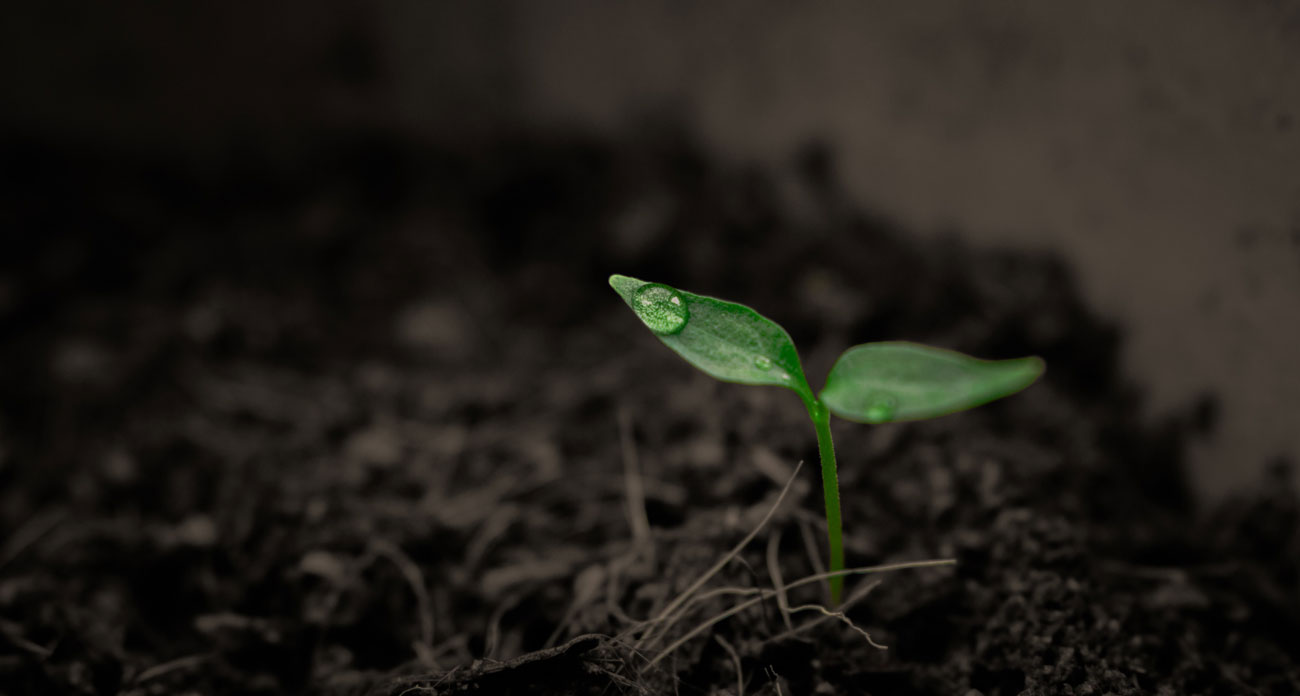
Following on from my article on organic gardening in June, I wanted to talk in more depth about something that you may think is boring, but holds the key to so much – soil!
If you’ve got a garden, then that’s great (and being able to be in the garden this year especially, has been really important). However, the way a lot of people treat their soil isn’t actually helpful for increasing biodiversity, or at all good for the environment. As I mentioned in my previous article, I’ve been gardening organically for the past thirty-five years, but today I’m concentrating on how we treat our soil can be releasing lots of carbon dioxide into the atmosphere. Soil, along with water, trees and fungi, is probably the most important substance on the planet (and indeed trees and fungi need it to grow in anyway). Try to recognise that fact for a moment! A good analogy is to realise that soil is the Earth’s equivalent of our gut! We now know, for example, that our gut health directly impacts on our overall health, on our mental health and our immunity – well, it’s the same with soil and its impact on the planet, on the food that farmers grow, and so on.
Environmentally, we also now know that it’s not going to be enough to just reduce carbon dioxide in the atmosphere, we actually need to reverse it as well and this means going against what most farmers and gardeners have been doing for centuries – digging.
For millennia, carbon dioxide has been stored underground, within trees and then under the seabed and within kelp forests underwater. We’ve dug it all up and used it for fuel but we’ve also dug it up unwittingly just by farming (ploughing) and gardening using traditional methods. The truth is that carbon in its proper place literally holds landscapes and ecosystems together.
Agriculture in particular is beginning to realise (finally) that it carbon agriculture can mitigate the problems of too little carbon dioxide in the soil which threatens the ability of farmers to feed us. I’m not suggesting that you become farmers (some of you may already be farmers, I don’t know!), but I am suggesting that if you change the way you garden you can help to keep more carbon in your soil rather than it going up into the atmosphere (in the long run, it will also save you money on buying animal manure and pesticides as healthier soil means more disease resistant plants and shrubs). Given that gardens in the UK collectively account for more land than all of our National Parks puts it into perspective!
Obviously, I’m not saying don’t have a new path laid or whatever but what I am saying is that on a daily basis, don’t dig unless you really have to, for example, when moving plants. Lay soft cuttings you’ve chopped back onto beds as well as leaves in the Autumn and just let them rot down – then the worms will do the rest. Your soil carbon content will increase as the soil holds onto it rather than it evaporating into the atmosphere – and the darker your soil is, the more carbon dioxide is stored within it – and this isn’t a matter of whether or not you believe what I’m saying – this is not a matter of belief, this is science fact. For example, it’s been proven over and over again that biodiversity will rise to be in line with how healthy forest floors are.
I haven’t dug my garden for decades and I drop fallen leaves back onto beds, I allow wild flowers to be in there along with cultivated species, I have old pieces of log where fungi can grow (which helps to hold the earth structure together amongst other things) and lots more. There’s a fantastic book called “The Soil will Save Us” by Kristin Ohlson, if you would like to find out more – and there is indeed lots more. The wonder of how Nature can reclaim land is inspiring. Even amidst this virus crisis, there were dolphins in the lagoon around Venice because humans have ceased motorised boats etc. and in Japan, because the streets were largely deserted, deer were roaming there. Hopefully, we can learn from all of this by embracing Nature in ways that help it to thrive.











